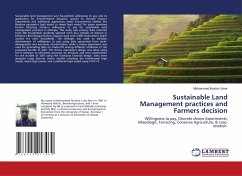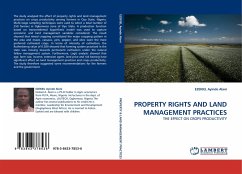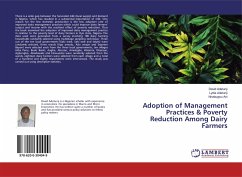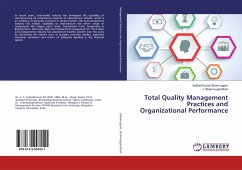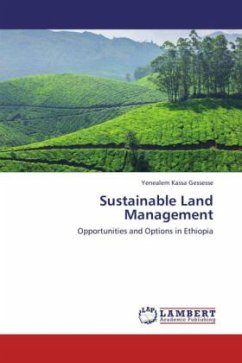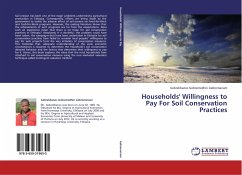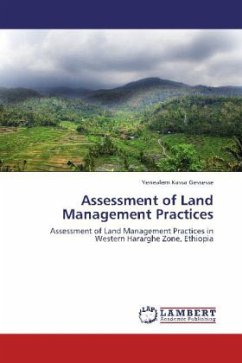
Assessment of Land Management Practices
Assessment of Land Management Practices in Western Hararghe Zone, Ethiopia
Versandkostenfrei!
Versandfertig in 6-10 Tagen
32,99 €
inkl. MwSt.

PAYBACK Punkte
16 °P sammeln!
In response to the extensive degradation of land and its negative impact on food security, focusing on the highlands where the trouble is more intimidating, a number of potential land management technologies have been introduced throughout Ethiopia since the 1970s. The basic paradigm and approach to land and water conservation has also evolved over time. Anchored in this, in recent years more holistic and land-scape wide approaches that go beyond resource conservation towards improved land husbandry and water management for bene cial conservation have also been promoted using a national guidel...
In response to the extensive degradation of land and its negative impact on food security, focusing on the highlands where the trouble is more intimidating, a number of potential land management technologies have been introduced throughout Ethiopia since the 1970s. The basic paradigm and approach to land and water conservation has also evolved over time. Anchored in this, in recent years more holistic and land-scape wide approaches that go beyond resource conservation towards improved land husbandry and water management for bene cial conservation have also been promoted using a national guideline known as Community Based Participatory Watershed Development (CBPWD). However, , in promoting a major change in preceding approaches, evaluating the consequences of past interventions on the livelihood of the intended users, and lessons and successes learnt from failures have to be considered as instrumental. This paper, therefore, attempts to review and assess major land management practices, and their outcomes in West Hararhge zone of Oromiya Regional State, Ethiopia.



